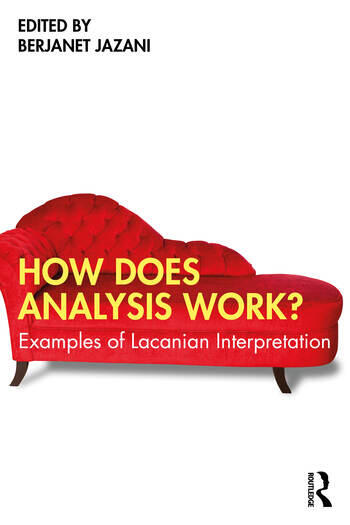How Does Analysis Work?: Examples of Lacanian Interpretation

Book Details
- Publisher : Routledge
- Published : 2024
- Cover : Paperback
- Pages : 152
- Category :
Psychoanalysis - Catalogue No : 97876
- ISBN 13 : 9781032637662
- ISBN 10 : 1032637668
Reviews and Endorsements
For those of us who, scholars or not, are interested in the complex engagements of psychoanalysis, it can be frustrating how poorly psychoanalysis has been understood in terms of both its theories and practices. Then, too, there's the brutally reductive matter of its popular cultural representations. These simplistic ideas are not only harmful to those who would like to grasp psychoanalysis intellectually, but to analysands' experience of psychoanalysis in the consulting room. A book that describes the wide range of heterogeneous possibilities that have emerged from this form of encounter would therefore be a welcome intervention - one that can deepen and expand our sense of psychoanalytic practice in ways that work to enrich its theoretical underpinnings as well.
Dr Devorah Baum, Associate Professor of English Literature and Critical Theory, University of Southampton, UK
There has been a distinct lack of suitable academic literature offering tangible clinical examples of the unique features of a Lacanian analysis. Hence I am confident this book would be well received and read with great interest by academics in the social sciences and humanities alike, as well as the wide range of clinicians working in the mental health field. Over the decades a number of myths have emerged around the image of the Lacanian analyst, playing on a cliched stereotype of the Lacanian style of interpretation. These myths are quite misleading and urgently in need of challenge; there is no doubt that they have negatively influenced the reception of Lacanian analysis more broadly across the UK. This volume would address these misconceptions in a way that should, I hope, make the key precepts of contemporary Lacanian technique accessible to a wider audience.
Dr Gwion Jones, Assistant Professor in Psychology, Coventry University, UK

